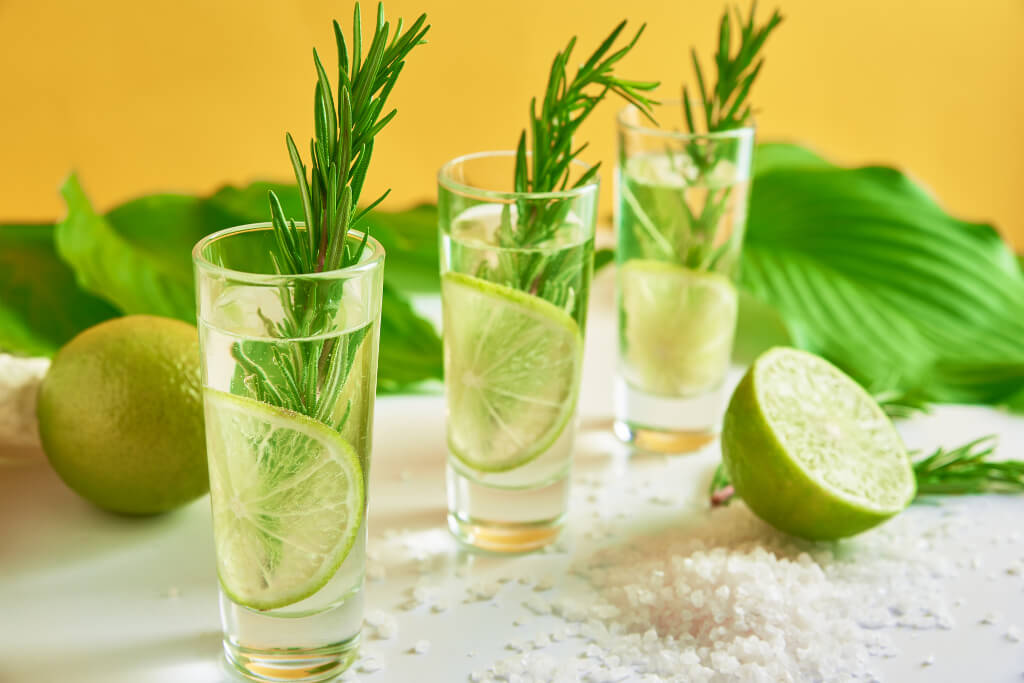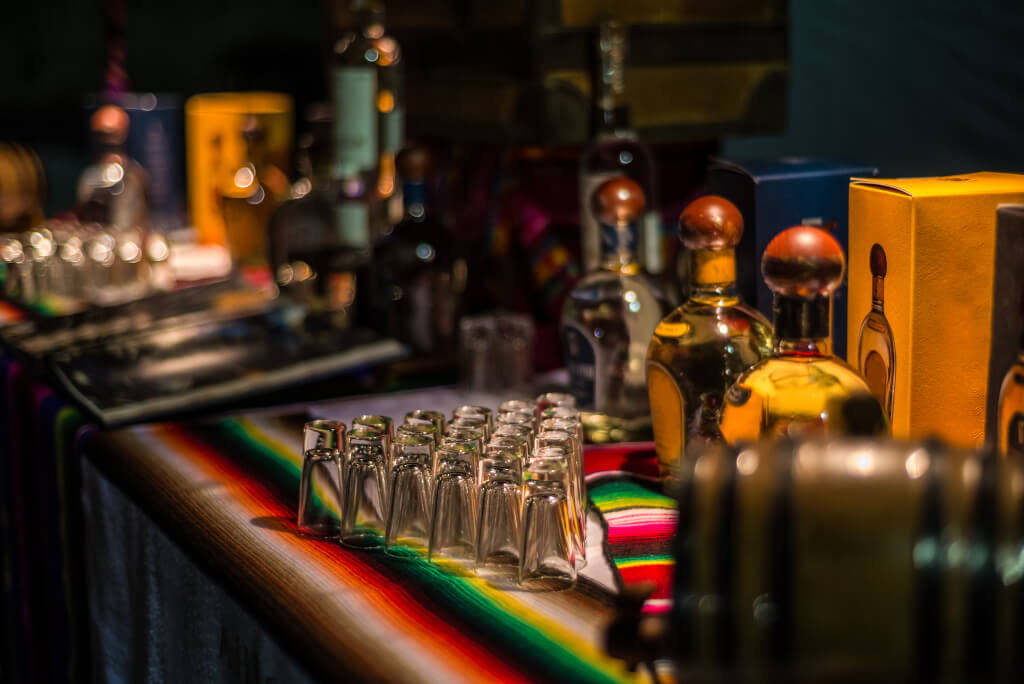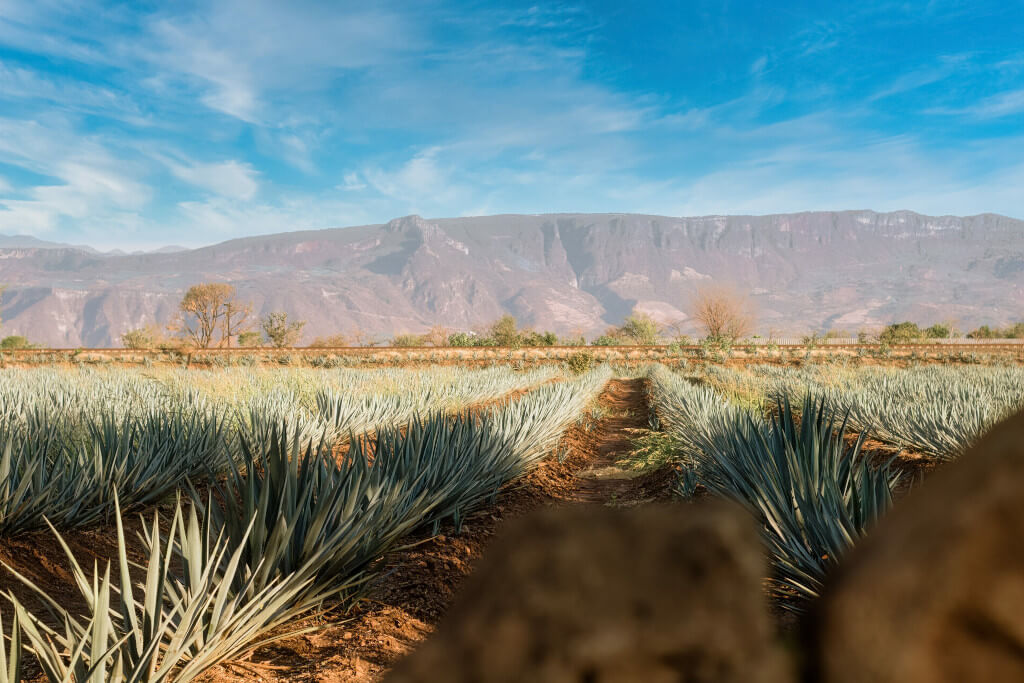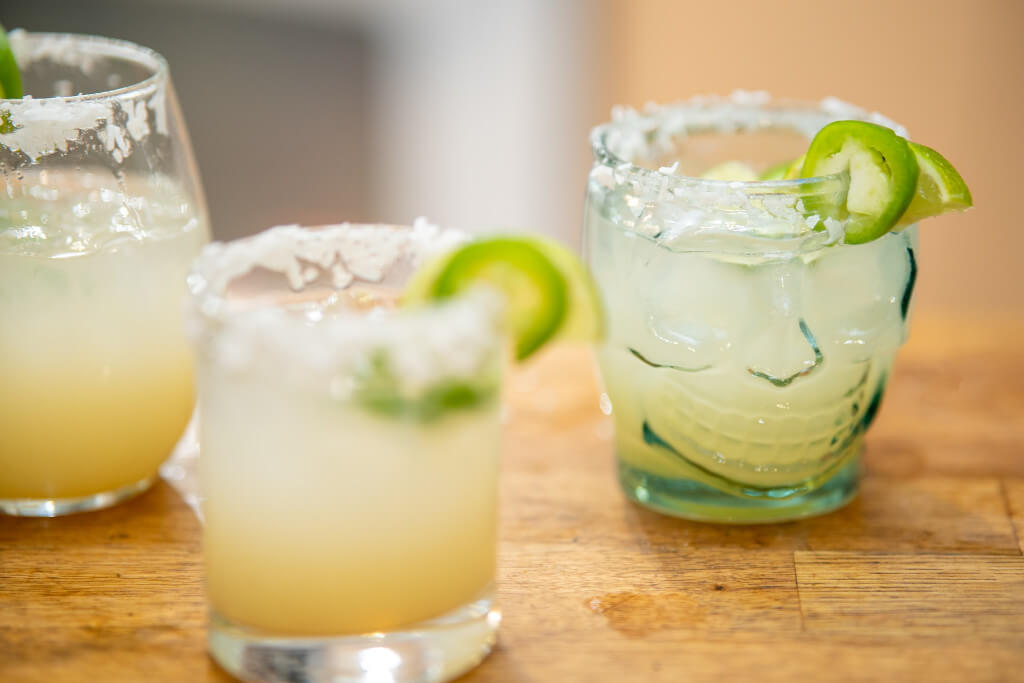In recent years, the tequila business has skyrocketed in popularity as the spirit has won over drinkers all over the world. This distilled spirit with its origins in Mexico is now widely used as a symbol of festivity and leisure. Sustainable and environmentally conscious practices in tequila manufacturing are becoming increasingly important as demand for the spirit continues to climb. Organic and sustainable tequilas are becoming the norm, marking a new era in the industry that combines the artisanal spirit of classic tequila with a dedication to environmental protection and community development.
In this piece, we go out on an adventure to learn more about organic and sustainable tequilas, which are becoming increasingly popular among drinkers who care deeply about both flavour and ethics in the workplace. Come discover the revolutionary new world of organic and sustainable tequilas and learn more about the sustainable spirit movement.
Determining What Makes Organic Tequila: Harnessing Nature’s Gifts
Organic tequila is more than a fad; it’s a serious effort to make tequila in a way that doesn’t harm the environment. To be labelled as organic, tequila must be produced by several different standards and certifications. Agave plants must be grown in compliance with national rules, which often prohibit the use of synthetic pesticides, herbicides, and GMOs. Organic tequila is made from the agave plant in a way that preserves its natural flavours and attributes while having as little of an impact on the environment as possible.
Organic Farming and Its Many Rewards
The advantages of organic farming extend far beyond the elimination of harmful synthetic chemicals. Using organic farming practises, tequila distilleries help safeguard vulnerable ecosystems and maintain biodiversity. The use of synthetic pesticides is prohibited in organic farming, which lessens the likelihood of environmental damage. Farmworkers, neighbouring towns, and local animals all benefit from this method.
Organic farming also encourages environmentally friendly farming methods like crop rotation, composting, and natural insect management. These methods boost soil fertility, increase water retention, and decrease erosion, all of which contribute to stronger agave plants and a more robust environment. Organic farming practises also place a premium on water conservation, which is particularly important in the desert locations where agave is grown.
Organic tequila production promotes social responsibility by placing an emphasis on fair labour practises and ethical treatment of workers, in addition to its environmental benefits. Organic tequila manufacturers improve the lives of those who work in the tequila industry by providing them with living salaries, safe working conditions, and respect for their human rights.
Organic tequila celebrates the balance between nature and human skill, giving drinkers peace of mind that their bottle was made with respect for the land and its producers.
The Long-Term Viability of Agave Farming
Sustainably producing tequila involves using a wide range of methods that are good for both the environment and the local community. Agave farming is essential since it is used to make tequila. Producers who care about the environment put a premium on using environmentally friendly methods when growing agave. Considerations such as soil type, drainage, and biodiversity must be made while selecting a plot of land for agave production. The habitats that support agave plants and the species that coexist inside them are safeguarded by organic and sustainable tequila producers that work to maintain the natural ecology.
Care for a Valuable Resource: Water
Since water is essential in the tequila-making process, sustainable methods try to limit the amount of water consumed. Successful farmers use techniques including efficient irrigation systems, rainwater collection, and water recycling. In dry places, where tequila production is common, these methods are essential since they prevent water waste and help conserve local water sources. Sustainable tequila distilleries show their dedication to environmental sustainability by carefully monitoring and controlling their water supplies.
The Positive Impact of Fair Trade and Ethical Labour Practises on Local Economies
Fairtrade and ethical labour practises are gaining popularity in the tequila sector, in addition to environmental sustainability. This ensures that everyone from agave farmers to distillery workers gets paid properly and is treated with respect throughout the tequila production process. The goals of fair trade programmes are to improve economic conditions for all parties involved and to strengthen local communities. Consumers can aid in social progress by purchasing fair trade tequilas, which go to improving the lives of the people who labour so hard to get tequila from the field to the bottle.
Workplace safety, respect for workers’ rights, and involvement in the local community are also essential components of ethical labour practices. Ethical manufacturers provide their workers with a living salary, encourage their employees to treat each other with respect and maintain a pleasant workplace. The tequila industry as a whole benefit from the company’s dedication to its employees’ happiness, and this trend should continue into the foreseeable future.
Caring for the people whose livelihoods depend on tequila production is just as important as caring for the land. Producers of tequila play a crucial role in promoting social and economic well-being and protecting the spirit’s authenticity by adopting sustainable practises and advocating for fair trade and ethical labor practises.
Conservation of Biological Resources and Soil Vitality
Producing tequila organically and ecologically has significant benefits for the planet. The protection of biodiversity is a major advantage. Producers of organic and sustainable tequila reduce the risk of harm to local flora and fauna by not employing synthetic pesticides and herbicides. When biodiversity is protected, ecosystems can keep their delicate equilibrium, which is beneficial to the environment as a whole.
Organic and sustainable tequila production not only protects biodiversity but also improves the quality of the soil in which it is produced. Natural microbial and fungal communities in the soil can thrive without the need for chemical fertilisers and pesticides. The soil’s fertility, structure, and overall health are all improved by this. Soil health is essential for agave sustainability since it increases plant growth, enhances nutrient uptake, and decreases erosion.
Minimising Energy Consumption and Water Waste
Reducing carbon emissions and water use is crucial to the fight against climate change and the promotion of environmental sustainability, both of which are aided by the manufacture of tequila in a sustainable manner. Energy efficiency, the use of renewable energy sources, and the implementation of efficient manufacturing processes are at the forefront of organic and sustainable practises. As a result, the amount of carbon dioxide released during the manufacture of tequila is reduced, as is the usage of nonrenewable energy.
Sustainable Tequila Production Also Requires Careful Management of Water Resources
Sustainable farmers reduce water wastage and make appropriate use of this precious resource by putting into practice efficient irrigation methods, water recycling, and rainfall gathering. Since growing agave requires a lot of water, using sustainable methods reduces pressure on municipal systems, increases access to clean water, and shows a dedication to water conservation.
Guardians of the soil and keepers of the future, organic and sustainable tequila producers are making a beneficial impact on the environment. Prioritising biodiversity conservation, soil health, carbon footprint reduction, and water conservation all help to create a more sustainable and resilient ecosystem, guaranteeing that tequila and the natural world will be around for future generations to enjoy.
Reasons for the Surging Interest
There are several reasons why organic and sustainable tequilas are becoming more popular. To begin, there is a clear trend of people preferring to buy goods that reflect their own personal ideals and ethical stances. Consumers are looking for products and services that encourage sustainability and have a small impact on the environment because of the increased awareness of environmental issues. Spirits drinkers are no exception; they are increasingly on the lookout for organic and environmentally friendly liquors.
In addition, shoppers are learning the hard way that their spending habits have far-reaching consequences for the environment and the communities they inhabit. They understand that by purchasing organic and sustainable tequila, they are promoting business practises that emphasize free and fair trade, respect for workers’ rights, and conservation of natural resources. This change indicates a desire for consumers to take into account the broader social and environmental consequences of their purchasing decisions.
Changes in Taste and Awareness
A growing awareness of the importance of sustainability and environmental responsibility among consumers has led to a shift in taste throughout time. Customers in the modern day place a premium on authenticity, traceability, and transparency. They are curious about the history of their tequila, the methods of production, and the effects on local populations and the environment. Organic and sustainable tequilas with a transparent and ethical manufacturing process are in high demand as a result of this shift in consumer thinking, which has led to heightened scrutiny of the spirits industry.
In addition, there has been an increase in consumer knowledge about why organic and sustainable farming methods are preferable. They realise that these actions not only benefit the health of the planet but also yield superior results. There has been a rise in demand for organic and sustainable tequila as connoisseurs seek out a more genuine and nuanced sipping experience.
The Importance of Accreditation and Supervision
Organic and sustainable tequilas rely heavily on certifications to prove their legitimacy and authenticity. Consumers can rest certain that the tequila they are buying is ethically and sustainably produced thanks to certifications like USDA Organic and Fair Trade. To get one of these seals of approval, a company must demonstrate that it adheres to stringent standards in areas such as organic farming, fair treatment of employees, and environmental responsibility.
The Market for Organic and Sustainable Tequila Places a Premium on Honest Labelling
Labelling that is both informative and accurate helps customers choose products that are good for the environment. To ensure that organic and sustainable claims are supported and consistent across the sector, regulatory authorities play a crucial role in monitoring and enforcing labelling requirements. The organic and sustainable tequila industry may gain consumers’ trust by maintaining a high level of transparency and responsibility.
Organic and sustainable tequilas are making a name for themselves in the spirits sector as rising consumer demand creates new opportunities. A more sustainable future is possible because of the increased awareness of sustainability among consumers, as well as the availability of certifications and transparent labelling.
Here Are Some Eco-Friendly and Organic Tequila Options
Several prominent tequila producers have established an industry benchmark with their pioneering use of organic and ecological methods. Casa Noble is one such company; its organically grown products are approved by the United States Department of Agriculture. They value pesticide-free agave farming, which helps sustain ecosystems and preserves natural resources. Siembra Spirits is another popular option; they work with regional growers and distilleries to create a tequila that is both organic and environmentally friendly. They advocate for fair trade practises that guarantee decent wages and working conditions for all employees.
Special Programmes and Accreditations
Some tequila labels even go beyond obtaining organic certifications to show their dedication to social responsibility and the environment. Patrón Tequila, for instance, uses a cutting-edge reverse osmosis water treatment system to cut down on water use and reuse wastewater in the manufacturing process. In addition to reforestation programmes and community outreach, they participate in a wide range of social and environmental activities. Ocho Tequila, in a similar vein, produces tequilas that highlight the distinctive aromas and flavours of individual agave farms. They prioritise sustainable business practises and fair trading with local farmers and craftspeople.
The Prospects for Organic, Eco-Friendly Tequila
There is hope for the future of organic and sustainable tequilas, as more and more people are looking for eco-friendly products. More and more tequila producers will likely switch to organic and sustainable methods as demand increases. The spirit sector as a whole is following this pattern, not only tequila producers. Certifications and clear labelling may become more commonplace, giving shoppers additional data with which to make ethical purchases.
New Ideas and Developments
The tequila industry’s continued push toward sustainability relies heavily on the contributions of innovators. There are continual attempts to minimise waste and lower the carbon footprint, including the management of agave waste and the use of energy-efficient distilling methods. Distilleries for some brands are being powered by solar energy and other renewables. The health of agave fields is being restored by others who are employing regenerative farming techniques. The quality and originality of organic and sustainable tequilas benefit from these new trends and novel practises, which also help the environment.
The future of organic and sustainable tequilas is bright, thanks to increasing demand for environmentally conscious products. The organic and sustainable tequila market will expand as more people become conscientious of their purchasing habits and seek out environmentally responsible options. The preservation of the rich heritage and traditions linked with tequila production is aided by this shift towards sustainability, which also helps the environment and local people.
An Upsurge in Eco-Friendly and Organic Tequilas
As customer desire for eco-friendly options and a heightened awareness of sustainability drive the rise of organic and sustainable tequilas, the spirits business is undergoing a sea change. Organic farming, water conservation, and fair trade are just a few of the ways that tequila producers are making the industry more environmentally responsible and ethical. These tequilas strike a nice balance between superior flavour and concern for the greater good, allowing drinkers to enjoy their beverage of choice while making a difference in the world.
In Defence of a Long-Term and Reliable Tequila Industry
We can influence the course of the tequila business as customers. To advocate for a more sustainable and ethical approach to spirit consumption, we’ve been exploring and promoting organic and sustainable tequilas. The decisions we make now will have a lasting impact on the environment, biodiversity, and local economies. Selecting organic and sustainable tequilas aids in environmental protection, worker welfare, and the production of high-quality libations made with love and attention to detail.




